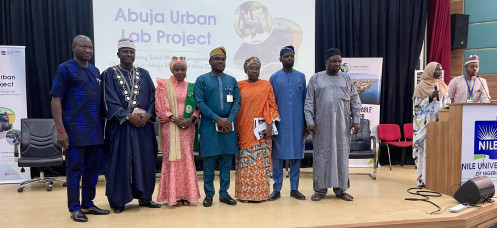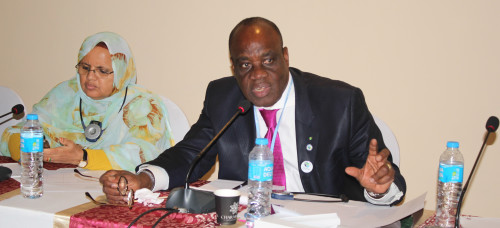Conversations with CoM SSA: Case Studies on Solid Waste Management
Published: 5 Feb 2021

In a recent Conversations with CoM SSA webinar, experts discussed four approaches to waste management in Sub-Saharan African governments. See the videi recording below.
In 2016, Sub-Saharan Africa (SSA) generated 174 Million tons of waste per year. According to the World Bank, by 2030, this number is projected to double and more than triple by 2050 to 516 million tons. In a rapidly urbanising context, local governments in the region struggle to manage ever-increasing waste volumes. Nevertheless, national and local governments have shown much interest in improving the implementation of good solid waste management practices.
Under the Covenant of Mayors in Sub-Saharan Africa initiative, GIZ aims to provide local governments in SSA with good practice examples of effective waste management, from CoM SSA signatories and local governments across the region. With the aim to enhance knowledge exchange between cities and empower local governments to develop effective waste management solutions, CoM SSA has released a case studies compilation with lessons learnt on Waste Management across the region.
Titled “Lessons on Recent Solid Waste Management Projects in Sub-Saharan Africa”, the report highlights four approaches to waste management in SSA local governments, from a small-scale community recycling solutions to multi-million-dollar regional waste programmes, across the continent from Sierra Leone to Kenya.
The short compilation includes key insights for local governments through four Solid Waste Management approaches:
- Integrated Solid Waste Management (ISWM) for local governments:
Introducing the concept of ISWM in the context of municipalities and local governments in Sub-Saharan Africa. This section uses case studies in Kenya to illustrate how local governments could design and implement ISWM. A Liberian case study shows that ISWM triggered a demand for replicability in neighbouring cities and even influenced national policy for managing waste.
- Public-Private Partnerships (PPPs) in Solid Waste Management:
Local governments can improve SWM service delivery by working with and promoting local enterprises and community based organisations. This section includes the example of Sierra Leone, with key insights on how local governments can utilize PPPs for a “win-win” solution to waste management.
- Regional partnerships to leverage investment support from multilateral sources:
This section draws on experiences from Lake Victoria in East Africa to show how local governments can forge a common front to address a regional problem. Bundling projects together can thus attract investment from multilateral partners.
- Low-cost waste recycling initiatives linking income generation and employment creation to solid waste management services:
Beyond large scale projects, many secondary and smaller cities could rather approach waste management with a mix of low-cost technological innovations. Community based enterprises in Bo City in Sierra Leone create waste-derived products for sale in local markets – improving the local economy and sanitation






